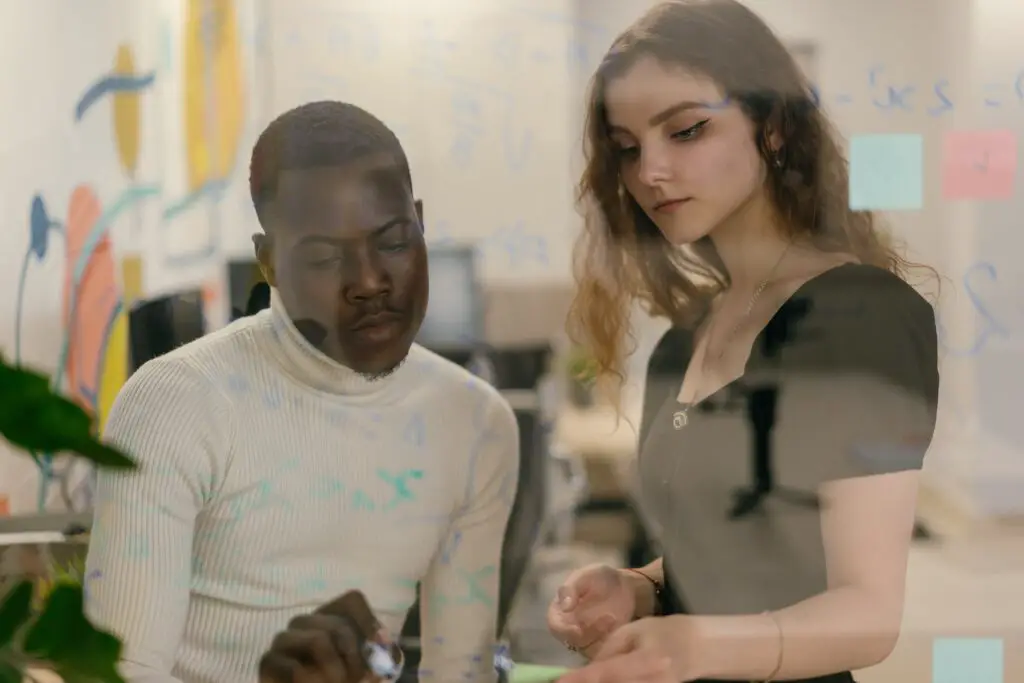Unlocking the Enigma:
Why is He Suddenly Avoiding Eye Contact?
In the intricate dance of human interaction, eye contact holds a paramount position. It’s the silent language that speaks volumes, conveying emotions, intentions, and connections without a single word uttered. So, when someone abruptly shies away from meeting your gaze, it’s natural to be intrigued, if not slightly concerned. What could be the reason behind this sudden shift in behavior? Let’s delve into this enigma and unravel the mysteries behind the avoidance of eye contact.

The Language of the Eyes:
A Brief Prelude
Before we plunge into the depths of avoidance, let’s take a moment to appreciate the profound significance of eye contact in human communication. From the tender gaze shared between lovers to the authoritative stare of a leader, the eyes serve as windows to the soul, offering glimpses into our innermost thoughts and feelings.
In everyday interactions, maintaining eye contact fosters trust, establishes rapport, and signals attentiveness. It’s a nonverbal cue that reassures us of our connection with others, anchoring us in the present moment of shared understanding. However, when this fundamental gesture is conspicuously absent, it can set off a cascade of questions and conjectures, leading us to wonder about the underlying motives behind the avoidance.
Why is He Suddenly Avoiding Eye Contact?
The enigmatic behavior of avoiding eye contact can stem from a myriad of reasons, each intricately intertwined with the complex tapestry of human emotions and experiences. Here, we explore some of the common threads that might elucidate this perplexing phenomenon:
1. Social Anxiety:
Social anxiety, characterized by an overwhelming fear of judgment or scrutiny in social situations, can compel individuals to avert their gaze as a coping mechanism. The intensity of the discomfort may vary, but the instinct to evade eye contact serves as a protective barrier against perceived threats to one’s self-esteem and social standing.
2. Guilt or Shame:
The weight of guilt or shame can cast a shadow over interpersonal interactions, prompting individuals to avoid eye contact out of a sense of unworthiness or remorse. Whether grappling with past transgressions or navigating delicate conversations, averting the gaze may offer temporary respite from confronting painful emotions or facing accountability.
3. Deception or Discomfort:
In contexts fraught with tension or dishonesty, avoiding eye contact can be a telltale sign of discomfort or deception. Whether concealing ulterior motives or evading uncomfortable truths, individuals may resort to averting their gaze as a subconscious attempt to evade detection or scrutiny.
4. Cultural Norms and Contextual Factors:
Cultural norms and contextual factors play a pivotal role in shaping our perception and expression of eye contact. In some cultures, prolonged eye contact may be perceived as confrontational or disrespectful, leading individuals to adopt varying degrees of avoidance based on societal expectations and norms.
5. Emotional Distress or Overwhelm:
Times of emotional distress or overwhelm can render individuals more susceptible to avoiding eye contact as a means of self-preservation. When grappling with intense feelings of anxiety, sadness, or anger, maintaining eye contact may feel overwhelmingly vulnerable, prompting a retreat into emotional self-protection.
6. Neurodiversity and Sensory Sensitivities:
Neurodiverse individuals, such as those on the autism spectrum, may experience sensory sensitivities that heighten their discomfort with eye contact. For these individuals, avoiding direct gaze can serve as a coping mechanism to mitigate sensory overload and navigate social interactions more comfortably.
7. Power Dynamics and Dominance:
In situations characterized by power differentials or dominance hierarchies, avoiding eye contact can be a subtle yet potent display of submission or deference. Whether in professional settings or interpersonal relationships, the act of averting one’s gaze may serve as a strategic maneuver to navigate the intricacies of power dynamics.
In Conclusion
The phenomenon of avoiding eye contact encapsulates a rich tapestry of human emotions, experiences, and social dynamics. From the subtle nuances of social anxiety to the complexities of cultural norms and power dynamics, the reasons behind this behavior are as varied as the individuals who exhibit it. By delving into these underlying factors with empathy and understanding, we can glean valuable insights into the intricate dance of human interaction and cultivate deeper connections grounded in mutual respect and empathy.

